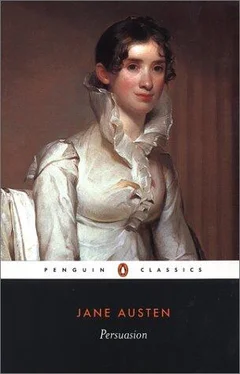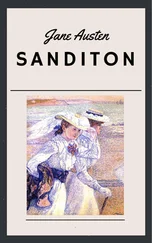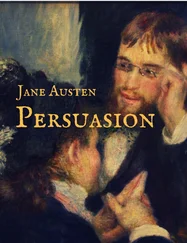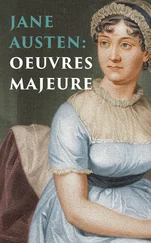Jane Austen - Persuasion
Здесь есть возможность читать онлайн «Jane Austen - Persuasion» весь текст электронной книги совершенно бесплатно (целиком полную версию без сокращений). В некоторых случаях можно слушать аудио, скачать через торрент в формате fb2 и присутствует краткое содержание. Год выпуска: 1816, Жанр: Классическая проза, Исторические любовные романы, на английском языке. Описание произведения, (предисловие) а так же отзывы посетителей доступны на портале библиотеки ЛибКат.
- Название:Persuasion
- Автор:
- Жанр:
- Год:1816
- ISBN:нет данных
- Рейтинг книги:3.5 / 5. Голосов: 2
-
Избранное:Добавить в избранное
- Отзывы:
-
Ваша оценка:
- 80
- 1
- 2
- 3
- 4
- 5
Persuasion: краткое содержание, описание и аннотация
Предлагаем к чтению аннотацию, описание, краткое содержание или предисловие (зависит от того, что написал сам автор книги «Persuasion»). Если вы не нашли необходимую информацию о книге — напишите в комментариях, мы постараемся отыскать её.
Persuasion — читать онлайн бесплатно полную книгу (весь текст) целиком
Ниже представлен текст книги, разбитый по страницам. Система сохранения места последней прочитанной страницы, позволяет с удобством читать онлайн бесплатно книгу «Persuasion», без необходимости каждый раз заново искать на чём Вы остановились. Поставьте закладку, и сможете в любой момент перейти на страницу, на которой закончили чтение.
Интервал:
Закладка:
"Nay, Sir Walter," cried Mrs Clay, "this is being severe indeed. Have a little mercy on the poor men. We are not all born to be handsome. The sea is no beautifier, certainly; sailors do grow old betimes; I have observed it; they soon lose the look of youth. But then, is not it the same with many other professions, perhaps most other? Soldiers, in active service, are not at all better off: and even in the quieter professions, there is a toil and a labour of the mind, if not of the body, which seldom leaves a man's looks to the natural effect of time. The lawyer plods, quite care-worn; the physician is up at all hours, and travelling in all weather; and even the clergyman-" she stopt a moment to consider what might do for the clergyman;-"and even the clergyman, you know is obliged to go into infected rooms, and expose his health and looks to all the injury of a poisonous atmosphere. In fact, as I have long been convinced, though every profession is necessary and honourable in its turn, it is only the lot of those who are not obliged to follow any, who can live in a regular way, in the country, choosing their own hours, following their own pursuits, and living on their own property, without the torment of trying for more; it is only their lot, I say, to hold the blessings of health and a good appearance to the utmost: I know no other set of men but what lose something of their personableness when they cease to be quite young."
It seemed as if Mr Shepherd, in this anxiety to bespeak Sir Walter's good will towards a naval officer as tenant, had been gifted with foresight; for the very first application for the house was from an Admiral Croft, with whom he shortly afterwards fell into company in attending the quarter sessions at Taunton; and indeed, he had received a hint of the Admiral from a London correspondent. By the report which he hastened over to Kellynch to make, Admiral Croft was a native of Somersetshire, who having acquired a very handsome fortune, was wishing to settle in his own country, and had come down to Taunton in order to look at some advertised places in that immediate neighbourhood, which, however, had not suited him; that accidentally hearing-(it was just as he had foretold, Mr Shepherd observed, Sir Walter's concerns could not be kept a secret,)- accidentally hearing of the possibility of Kellynch Hall being to let, and understanding his (Mr Shepherd's) connection with the owner, he had introduced himself to him in order to make particular inquiries, and had, in the course of a pretty long conference, expressed as strong an inclination for the place as a man who knew it only by description could feel; and given Mr Shepherd, in his explicit account of himself, every proof of his being a most responsible, eligible tenant.
"And who is Admiral Croft?" was Sir Walter's cold suspicious inquiry.
Mr Shepherd answered for his being of a gentleman's family, and mentioned a place; and Anne, after the little pause which followed, added-
"He is a rear admiral of the white. He was in the Trafalgar action, and has been in the East Indies since; he was stationed there, I believe, several years."
"Then I take it for granted," observed Sir Walter, "that his face is about as orange as the cuffs and capes of my livery."
Mr Shepherd hastened to assure him, that Admiral Croft was a very hale, hearty, well-looking man, a little weather-beaten, to be sure, but not much, and quite the gentleman in all his notions and behaviour; not likely to make the smallest difficulty about terms, only wanted a comfortable home, and to get into it as soon as possible; knew he must pay for his convenience; knew what rent a ready-furnished house of that consequence might fetch; should not have been surprised if Sir Walter had asked more; had inquired about the manor; would be glad of the deputation, certainly, but made no great point of it; said he sometimes took out a gun, but never killed; quite the gentleman.
Mr Shepherd was eloquent on the subject; pointing out all the circumstances of the Admiral's family, which made him peculiarly desirable as a tenant. He was a married man, and without children; the very state to be wished for. A house was never taken good care of, Mr Shepherd observed, without a lady: he did not know, whether furniture might not be in danger of suffering as much where there was no lady, as where there were many children. A lady, without a family, was the very best preserver of furniture in the world. He had seen Mrs Croft, too; she was at Taunton with the admiral, and had been present almost all the time they were talking the matter over.
"And a very well-spoken, genteel, shrewd lady, she seemed to be," continued he; "asked more questions about the house, and terms, and taxes, than the Admiral himself, and seemed more conversant with business; and moreover, Sir Walter, I found she was not quite unconnected in this country, any more than her husband; that is to say, she is sister to a gentleman who did live amongst us once; she told me so herself: sister to the gentleman who lived a few years back at Monkford. Bless me! what was his name? At this moment I cannot recollect his name, though I have heard it so lately. Penelope, my dear, can you help me to the name of the gentleman who lived at Monkford: Mrs Croft's brother?"
But Mrs Clay was talking so eagerly with Miss Elliot, that she did not hear the appeal.
"I have no conception whom you can mean, Shepherd; I remember no gentleman resident at Monkford since the time of old Governor Trent."
"Bless me! how very odd! I shall forget my own name soon, I suppose. A name that I am so very well acquainted with; knew the gentleman so well by sight; seen him a hundred times; came to consult me once, I remember, about a trespass of one of his neighbours; farmer's man breaking into his orchard; wall torn down; apples stolen; caught in the fact; and afterwards, contrary to my judgement, submitted to an amicable compromise. Very odd indeed!"
After waiting another moment-
"You mean Mr Wentworth, I suppose?" said Anne.
Mr Shepherd was all gratitude.
"Wentworth was the very name! Mr Wentworth was the very man. He had the curacy of Monkford, you know, Sir Walter, some time back, for two or three years. Came there about the year --5, I take it. You remember him, I am sure."
"Wentworth? Oh! ay,-Mr Wentworth, the curate of Monkford. You misled me by the term gentleman. I thought you were speaking of some man of property: Mr Wentworth was nobody, I remember; quite unconnected; nothing to do with the Strafford family. One wonders how the names of many of our nobility become so common."
As Mr Shepherd perceived that this connexion of the Crofts did them no service with Sir Walter, he mentioned it no more; returning, with all his zeal, to dwell on the circumstances more indisputably in their favour; their age, and number, and fortune; the high idea they had formed of Kellynch Hall, and extreme solicitude for the advantage of renting it; making it appear as if they ranked nothing beyond the happiness of being the tenants of Sir Walter Elliot: an extraordinary taste, certainly, could they have been supposed in the secret of Sir Walter's estimate of the dues of a tenant.
It succeeded, however; and though Sir Walter must ever look with an evil eye on anyone intending to inhabit that house, and think them infinitely too well off in being permitted to rent it on the highest terms, he was talked into allowing Mr Shepherd to proceed in the treaty, and authorising him to wait on Admiral Croft, who still remained at Taunton, and fix a day for the house being seen.
Sir Walter was not very wise; but still he had experience enough of the world to feel, that a more unobjectionable tenant, in all essentials, than Admiral Croft bid fair to be, could hardly offer. So far went his understanding; and his vanity supplied a little additional soothing, in the Admiral's situation in life, which was just high enough, and not too high. "I have let my house to Admiral Croft," would sound extremely well; very much better than to any mere Mr-; a Mr (save, perhaps, some half dozen in the nation,) always needs a note of explanation. An admiral speaks his own consequence, and, at the same time, can never make a baronet look small. In all their dealings and intercourse, Sir Walter Elliot must ever have the precedence.
Читать дальшеИнтервал:
Закладка:
Похожие книги на «Persuasion»
Представляем Вашему вниманию похожие книги на «Persuasion» списком для выбора. Мы отобрали схожую по названию и смыслу литературу в надежде предоставить читателям больше вариантов отыскать новые, интересные, ещё непрочитанные произведения.
Обсуждение, отзывы о книге «Persuasion» и просто собственные мнения читателей. Оставьте ваши комментарии, напишите, что Вы думаете о произведении, его смысле или главных героях. Укажите что конкретно понравилось, а что нет, и почему Вы так считаете.












